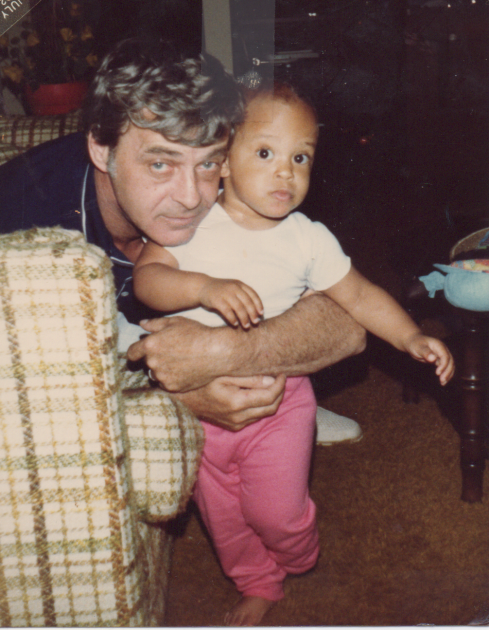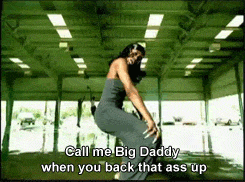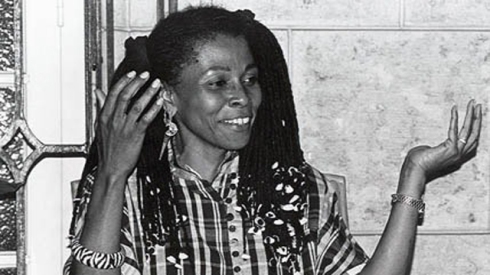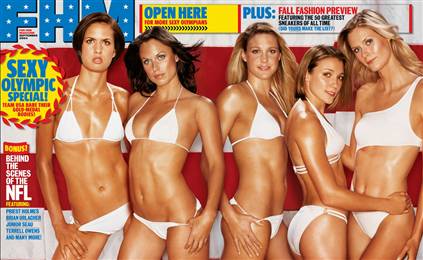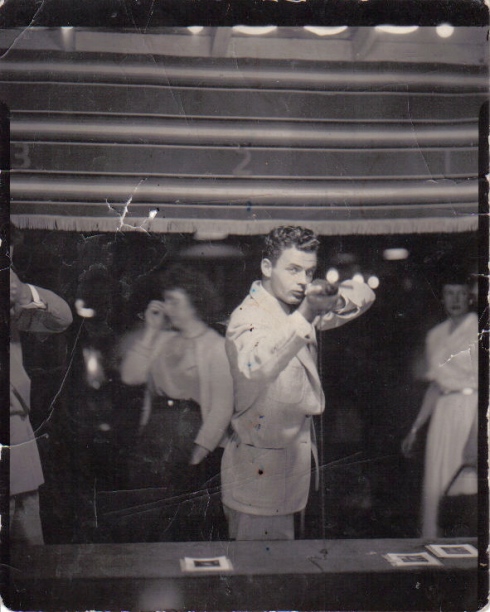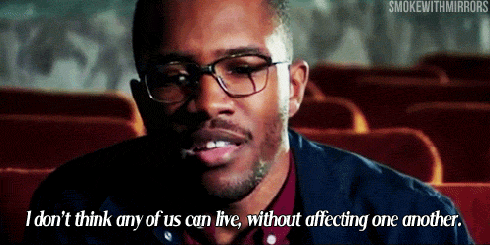Today, December 17th marks the 5th year since daddy died. Yesterday I sobbed uncontrollably while watching Everybody’s Fine. Robert De Niro reminds me of him. I wish I could say it gets easier over time. But it doesn’t. You just learn to cry more in private.
A Song for Assata and Trayvon
17 JulIt wasn’t until I reach undergrad when I was formally introduced to Assata’s work through music. It wasn’t her words, but her voice on Common’s album ‘Like Water For Chocolate’ to which I was first drawn. When she said, “Freedom? You asking me about freedom? I’ll be honest with you, I know a whole lot more about what freedom isn’t than what it is.” her words stayed with me. They never left.
About ten years ago, when I living in Houston pursing a music career I demo’ed a song by Dick Gregory’s daughter, Ayanna Gregory, called “I Believe.” I didn’t realize until later that the song was adapted from Assata’s poem ‘Affirmation‘. All along Assata has been in my life like a strangely familiar shadow. The sort of encounter that’s the sweetest.
Happy birthday Assata Shakur.
Video description:
On July 16th, 2013, also Assata Shakur’s birthday, I put together a tribute piece for Trayvon Martin. The images are from a recent Travyon Martin peace rally I attended in New York City. I recorded the song, “I Believe” over ten years ago and up until now never released it publicly. I figured now was a better time than any to share the song with others. The lyrics are adapted from Assata Shakur’s poem Affirmation. Enjoy.
Photos and video by Tara L. Conley (copyright 2013)
Sexing Up Female Atheletes
15 MayThe following is a throwback post (#tbp) from 2008 when I was a content writer for Youthnoise.org (now Mobilize.org).
With all the hoopla (like this and this) surrounding the 2008 Olympic games, how could I not add my own little one-cent to the blogosphere hoopla as sort of a week ending round up.
TGIF!!
Okay, so Gawker dedicated a post this week to the top 25 Olympic Hotties ranging from U.S. swimmer Amanda Beard to U.S. wrestler TC Dantzler. Profiling “hot” Olympic athletes in mainstream media is nothing new, it’s actually great for sponsorship and yep, it’s great for business.
In 2004, my fellow track and field teammate at the University of Houston, Jenny Adams, was featured on the cover of FHM’s Olympic Special Issue (incidentally, Jenny didn’t qualify for the Olympics that year which sucked because I was rooting for her hardcore).
Jenny Adams (hey girl!)
Seeing as how most Olympic athletes aren’t necessarily rolling in the NBA or MLB dough, arguably these athletes have to take advantage of what they can during the Olympic season.
Although, I’m not quite sure how I feel about (what appears to be) the objectification of fe/male bodies in mainstream media. (Yes, I’m putting that MA degree in Women’s Studies to use!). I wouldn’t be “socially conscious” if I didn’t consider the potentially damaging image these athletes are portraying, or rather the image we, the folks, are buying into.
Am I over reacting?
Before answering, consider this question: what does Amanda Beard’s boobs have to do with her impressive seven Olympic medal performances?
I don’t necessarily have an issue with homegirl covering FHM (she’s a grown woman so more power to her), but I wonder if sexualizing Olympic athletes is the way to go right now, especially with so many controversies surrounding human rights’ issues in Bejing, etc. And honestly, do we really need our top world athletes contributing to a sexually obsessed, and repressed, society???
Granted, escapism, in the form of Canadian diver Alexandre Despatie six pack, is refreshing especially during a time when everything else from the economy to foreign policy is in the dumps. And don’t get me wrong; I’m down for the eye-candy once in awhile. I can also get down with sex-positive feminism, but I just wonder what are we actually celebrating with these images: human agility and athletic performance or an athlete’s butt-cheeks in the foreground of photograph with the phrase ‘Golden Girls’ hanging below?
You get the point.
I remember growing up idolizing Florence Griffith Joyner in all her flamboyant outfits and long-neon-colored fingernails. I never understood Flo Jo’s image as ‘sexualized’ in any way (maybe that’s because I didn’t know what sexualized meant at the ripe old age of ten). I was too focused on her superhuman ability to run a 100-meter dash in those eclectic outfits she wore.
(Yeah, yeah, yeah, I’m not going to get into the steroid controversy right now).
Point is, I understand that sexing-up athletes is nothing new, and the images of these “hotties” pales in comparison to some of the other sexualized images we see everyday via idiot box.
But I still can’t help but wonder what’s the point.
Sweet Potatoes Story 1: Vol. 1 #TLTT
23 DecThe following excerpt is part of the blogging project, The Life and Times of Tara #TLFF
That it will never come again
Is what makes life so sweet.
– Emily Dickinson, Poem Number 1741
She used to imagine she’d find out while cutting sweet potatoes. Something about the monotony of slicing through tough roots felt apropos. She’d feel a brief chill moments before answering the phone call from her mother. She’d have known what her mother was going to tell her because she was intuitive, perhaps to a fault. This scenario, she imagined, played over and over in her mind for several years. The thought became more obsessive throughout her late teens and early twenties. This was the only way she could imagine it; to experience her father’s death from a safe distance.
The peeling of thin slices, layer by layer kept her mind occupied. The chomping sound, like biting into a sour apple, provided a soundtrack for her thoughts. Still, she couldn’t avoid her legs from going limp upon remembering the day she sat by her father’s bedside. She was transfixed by the vein that pulsated on the right side of his neck. Every hour that went by the slower the vein would pump. Any moment now, she thought to herself, he’d be gone.
She used both hands to press down on the knife to make a swift cut. Sweet potatoes are resistant. Her forefingers numb from cutting all afternoon. Calluses forming. Her hands were swollen.
She remembered her father’s hands. His fingers were thick, bloated. His nails yellowing. His hands were turning pale white, but the age spots were still visible. Rigamortis was setting in even though his heart was still pumping. He wasn’t leaving without a fight.
The water was boiling for too long prompting her to drop the potato slices in the shallow water that remained. The potatoes were submerged. She poured white and brown sugar on top of the potatoes, then seasoned the slices with nutmeg and cinnamon until fragrant. Insider her small apartment it felt hot, stagnant, and humid from the boiling water. It felt like home.
She hadn’t lived with her father for several years. After he became too sick for her to take care of alone, he was moved to the family home down south. They were roommates for nearly a decade. She had her own room, he had his. There was also a spare bedroom for him to paint, and for her to dance. They were two artists living under one roof. Like father, like daughter. They’d congregate in the family room on week nights to watch cable news. They’d gather on the deck at midnight to gaze at the southern stars. He’d tell her with insistence that there’s no way we’re the only ones alive in the universe. If so, what an entire waste of goddamn space. Her father believed something was out there in the stars, though he was never quite sure. She liked to believe in the hypothesis that something was out there wandering about, but she needed more evidence. The conversations and debates never grew old. She always believed that her father, although significantly older in age and experience, consider her as an intellectual equal. He encouraged her to question everything. Though he didn’t explicitly tell her to, she learned to question authority by observing the life he led. He didn’t always win, but at least he was heard.
While living together she’d cook and he’d wash the dishes. Thanksgivings were a deal. She’d cook a massive meal that included turkey, dressing, sweet potatoes, pies, greens, all of which they could never eat. He’d hand-wash all of the plates, silverware, pots, and pans, despite there being a dishwasher. Neither minded taking the time to finish each chore. For them, home life was a system of looking out for each other. Patiently.
An hour had passed. The sweet potato slices were soft and ready to go in the oven. She drizzled marshmallows over the tender slices and placed the pan in the pre-heated stove. Several minutes later they were ready to eat.
It had been five years since her father passed away. Five years since she sat next to his stiffening body. She’ll never forget the waiting. Never forget the musty smell in the bedroom or the heat that surfaced from anxiety’s curse. She’ll always remember watching when the vein stopped pumping, and she’ll always recall that moment when she whispered to herself, “that’s it. It’s over.”
She sat alone at the small dining table looking down at a hot plate filled with the syrupy-glazed concoction. The marshmallows slid from the potatoes like butter on a warm skillet. She swallowed a fork full. They were the sweetest potatoes she ever ate.
Revamping The Life and Times of Tara (#TLTT)
17 NovHaving recently been inspired by my cousin’s Facebook page, ImmaTeen, and reading all of the fascinating stories about teenage growing pains and love, I’ve decided to reconfigure The Life and Times of Tara (#TLTT) as solely a storytelling blog. I’ve been thinking about ways to revamp this space since it’s my most visited web page among the others, and since the title of the blog makes sense for storytelling.
I’ll start with short vignettes about one young woman. Not sure where she lives. Not sure what she does. But I’m sure the details will emerge eventually. I am, however, certain she meanders. I think I’ll frame her experiences through a mixture of fiction and non-fiction since she’s probably an ephemeral character anyway.
When I was a kid I wrote a story about a princess riding on a magic carpet in the desert. I also once told a cautionary tale about a teenage girl who’d been seduced by an older male teacher (think: After School Special). When I was 22-years-old, I composed a 150-page novella about a well-renowned psychiatrist from the Northeast who maintained an intimate relationship with woman no one had ever seen before.
From a desert princess to a teenage girl to an invisible woman, I definitely have something to work with.
Not sure how often I’ll be able to write, but I think I’ll start by going through some of those old stories, reshaping the narratives and plots, and then post them here. Feedback and comments are welcome. Ya’ll can help narrate the stories if you’d like. I hope #TLTT will be like your back porch on a humid night in Houston; musty and buggy, but comfy like home.
My imagination was wicked when I was a girl. Here’s hoping I can tell those kind of stories here on this rickety back porch.
It is important to say the names of who we are, the names of the places we have lived, and to write the details of our lives . . . We have lived; our moments are important. This is what it is to be a writer: to be the carrier of details that make up history, to care about the orange booths in the coffee shop in Owatonna . . . Recording the details of our lives is a stance against bombs with their mass ability to kill, against too much speed and efficiency A writer must say yes to life, to all of life: the water glasses, the Kemp’s half-and-half, the ketchup on the counter . . . We must become writers who accepts things as they are, come to love the details, and step forward with the yes on our lips so there can be no more noes in the world, noes that invalidate life and stop these details from continuing” – Natalie Goldberg, Writing Down the Bones.
#staytuned
Craig Robinson On Growing Up, Coaching, and Encouraging Players
5 SepFrom a 2010 YouthNoise.com (now Mobile.org) interview
This past week I had the wonderful opportunity to chat with Oregon State University men’s basketball coach, Craig Robinson, for the Play It Forward campaign. While I didn’t get an opportunity to ask much about his sister, First Lady Michelle Obama, coach Robinson did tell me about about his life before basketball, his experiences as a player and coach, and the importance of the Play It Forward campaign. He also shared with me his thoughts about Lebron James, since, of course, I had to ask. Check out the interview below.
How instrumental was your former coaches in your life like, for instance, legendary Princeton coach Pete Carril?
Before I talk about coach Carril, it’s important to know that my first real coaches were my mom and dad. They had a huge impact on me getting into coaching. The kind of things that I learned from them helped me become more receptive to coaching. Hard word, diligence, time management, and all those kind of character building traits, I learned from my parents.
In terms of coach Carril, I think that one of the things I learned I hadn’t really picked up on, or understood the nuances, was how much hard work can overcome talent. It’s important to know because it’s not something you can easily pick up on because you just assume everyone is working just as hard as everyone else. It’s like if he’s an NBA player and you’re a college player, then the NBA player should win out all of the time, right? However, I learned from coach Carril that’s not necessarily the case. Team work and a lot of practice can make anyone compete at a much higher level than you think.
You left a lucrative career on Wall Street to coach college basketball. Was that a difficult decision for you?
Initially it was difficult only because when you’re working in investment banking there are a lot of “trappings” you get used to. You live a very nice lifestyle and you make a very good living. If you’re in management, you get to do some coaching, but it’s not coaching of kids, of course. The decision to change my lifestyle was a difficult one because I had young children at the time and I didn’t want them to have to suffer based on what I wanted to do. So that took some real mulling over before I had the courage to do it. Once I had the opportunity it wasn’t hard at all. I knew at some point in my life I wanted to retire and coach high school basketball — so I knew it was going to come. I just didn’t realize it was going to come as early as it did.
As an African-American NCAA coach, do you find that the lack of diversity in NCAA basketball makes it challenging for black coaches overall to advance in their careers, network, and gain exposure opportunities?
I understand what you’re saying, but I think the college basketball ranks have probably done the best job in hiring minority coaches. The difficulty in getting these jobs has to do with the number of jobs available. When you think about Division I basketball, there are roughly 340-something jobs. That’s not very many. Then you also put the number on paper and see that each one of the those 340-something teams have a head coach and three assistant coaches. So that’s four times that number of positions. Each year, only about 50 jobs open up. The difficulty in getting the job [is about] the number of jobs available for the number of people qualified to do the job. I just want to go on record and say that men’s college basketball has done a great job in having a more diverse coaching roster than, say, football.
According to U.S. News and World Report, white Division I basketball players graduate at a 28% higher rate than their African-American counterparts. Why do you think that is?
It would be interesting to see what the overall graduation rates are between blacks and whites because here at Oregon State most student athletes graduate at a higher rate than the overall population at the university. I’d have to see how that statistic compares with the rest of the campus because if it’s the same, then it just is what it is, and that’s a different societal problem and not an athletic problem.
As a coach, how do you encourage your players to succeed off the court and after basketball?
I try to be extremely realistic about what the chances are in making a living playing basketball. That’s first and foremost. When that doesn’t work, I just show them the numbers. There are sixty guys that get drafted every year out of the thousands of college basketball players – it might even be tens of thousands of college basketball players depending on whether you take into account Division II and III. So what we try to do is, while we’re using our opponents to motivate the kids to play better, we’re also using them to motivate the kids to do better in the classroom. We encourage them to recognize all the resources available for them as student athletes; career counseling, mentorship programs, etc. It’s tough because just about every kid you recruit thinks they’re going to play on the professional level, whether that’s in Europe or in the NBA. We have to be really diligent when sending out that message.
I recently spoke with one of your former player, Mark MacDonald, who recently told me that you keep a thesaurus and dictionary in the locker your, can you explain why you do that?
I played and worked for coach Bill Carmody, of Northwestern University, and he did that and I thought it was a wonderful tradition to keep going. The reason why I do it is because I try to talk to the guys like I would talk with a reporter or another person. I use the language best suited for the conditions and sometimes those are words that kids who play college basketball aren’t used to hearing. When they do hear the words and it’s a word they haven’t seen before or don’t understand, I tell them to go look it up! They can use the dictionary or thesaurus to figure it out. What I enjoy the most, Tara, is when they come back at me with one of the words I used on them.
What are some life lessons you learned, and are learning, as a coach?
I’ve found that there are very few people who can’t be taught something. You know, a lot of players and students get into a kind of box that some coaches and teachers feel they can’t get out of. I’ve found that there are many ways to teach. I’ve learn in this profession that there is more than one way to skin a cat. It’s opened my eyes to the many ways that teachers can be creative when they’re in classrooms. The tried and true trait that we talked about earlier is that a little hard work is good for the soul and it gives you a sense of accomplishment, even if you don’t win the game. Those are a couple of things that I continue to learn as an adult.
Why do you think the Play It Forward campaign, which encourages young athletes to bring lasting change to their communities through sport, is important for coaches and players to be involved with?
I’m a big proponent of giving back. Athletes have this wonderful ability to attract attention and people listen to them. So when you get former and current athletes helping out in the community, you get more bang for your buck. It’s good karma. We’ve always had someone in our lives help us to get where we need to go, so why not reach back and try to do the same thing? So I think [Play It Forward] is a wonderful campaign.
How do you think Lebron James handled his situation to leave the Cleveland Cavs for the Miami Heat?
We live in a society where you can work where ever you want to work. So I don’t have any problem with Lebron going to Miami at all. I just would’ve wanted the separation to be less public, just for the sake of the fans in Cleveland who got left. You know, I’m excited to see what Lebron can do down there [in Miami]. I don’t have any problem with that. If it was me, though, I would’ve given a heads up to the people of Cleveland. It was almost like he celebrated leaving, and I’m sure that’s not what he meant, but that’s the way it came across.
Everyone in the league and the fans know it’s a business, players move around. More power to them. I just would’ve hoped for a bit more sensitivity for the fans he was leaving.
Many thanks to coach Robinson for this exclusive interview. Also thanks to YouthNoise, Play City, and Up2Us for co-sponsoring the Play It Forward campaign. Stay with Play City this summer for more uplifting interviews from inspiring coaches from around the country!
Randomly Remembering My Dad Randomly Dreaming
30 JulHe’s been gone for almost 4 years now. I was thinking about the letter I found that he wrote right before I graduated from college.
An Old Man Dreams
What could have been, what might have been, what is. When life is new there are many years ahead. What are you going to be? Your dreams of a life in baseball, yes, that was a dream. It didn’t happen, but many other things did; some good and some not so good, but still you dream on. I dreamed about a time in the Army. Survival happened. There was a dream of family. I wanted children to be proud of. That happened. Thank God. Two good women that gave those children to me. Thank you. You are always in my dreams. What happens to an old man who never felt old? A dream of many older people: to stay young. You dream of the next generation and you have hope and prayers for them. My youngest Tara is still young enough to be that generation. She will graduate with honors from the University of Houston. She is the dream I have for the new generation. They’ll be just fine. Thank you, Lord. So I dream now of leaving something for my family. Love God. Love family and love life. Live accordingly. My dream is being with all of you in Heaven. God bless. Dad. ~ James Joseph Conely, December 2004.
I’ve been wandering in frustration lately. New York City does that to a person. Thanks again for reminding me where I’m supposed to be, Daddy.
thanks again, frank ocean.
12 JulRelated:
Thank You, Frank Ocean by dream hampton via Life and Times
Frank (You’re Amazing) by Rashaan Patterson via Soundcloud (mp3 download)
Just to reiterate. . .
19 AprI feel that for white America to understand the significance of the problem of the Negro will take a bigger and tougher America than any we have yet known. I feel that america’s past is too shallow, her national character too superficially optimistic, her very morality too suffused with color hate for her to accomplish so vast and complex a tsk, Culturally the Negro represents a paradox: Though he is an organic part of the nation, he is excluded by the entire tide and direction of American culture. Frankly, it is felt to be right to exclude him, and it is felt to be wrong to admit him freely, Therefore if, within the confines of its present culture, the nation ever seeks to purge itself of its color hate, it will find itself at war with itself, convulsed by a spasm of emotional and moral confusion. If the nation ever finds itself examining its real relation to the Negro, it will find itself doing infinitely more than that; for the anti-Negro attitude of whites represents but a tiny part–though a symbolically significant one–of the moral attitude of the nation.
Our too-young and too-new America, lusty because it is lonely, aggressive because it is afraid, insists upon seeing the world in terms of good and bad, the holy and the evil, the high and the low, the white and the black; our America is frightened of fact, of history, of processes, of necessity, It hugs the easy way of damning those whom it connot understand, of excluding those who look different, and it salves its conscience with a self-draped cloak of righteousness. Am I damning my native land? No; for I, too, share these faults of character! And I really do not think that America, adolescent and cocksure, a stranger to suffering and travail, and enemy of passion and sacrifice, is ready to prove into its most fundamental beliefs” ~ Richard Wright, BLACK BOY, 1944.
